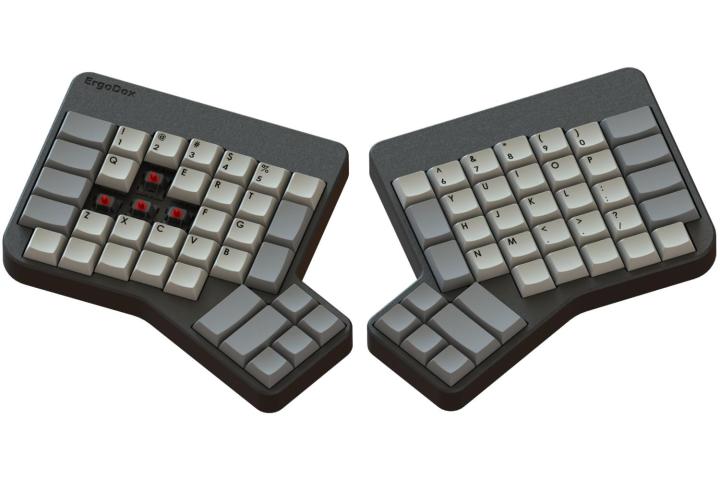
This style of keyboard has surged in popularity lately in the gaming scene, as many of the most popular PC titles demand a rigorous set of keypresses that can be arduous (and sometimes downright impossible) on the classical QWERTY setup.
Both the firmware and the hardware on the ErgoDox is 100% open source, so you can customize it any way you want to best fit your needs on a day to day basis. Feel like getting some work done, but wrists too sore to reach the top keys? Shove everything down one row in the software, and type away.
Have a hundred different bindings tied to your character in World of Warcraft, but can’t remember them all? The ErgoDox makes it easy to keep your hotkeys organized to your personal preference, with multiple profiles saved on each device you connect to.
Technically the ErgoDox has been available for some time, but in its previous form it came in 160 different pieces, all of which need to be hand soldered together before you had a working product. The EZ versions solves that problem. You can pre-order a pre-assembled ErgoDox EZ keyboard today for $190 including keycaps, or $180 if you want to provide your own customized set for the perfect gaming, video editing, or typing experience.


